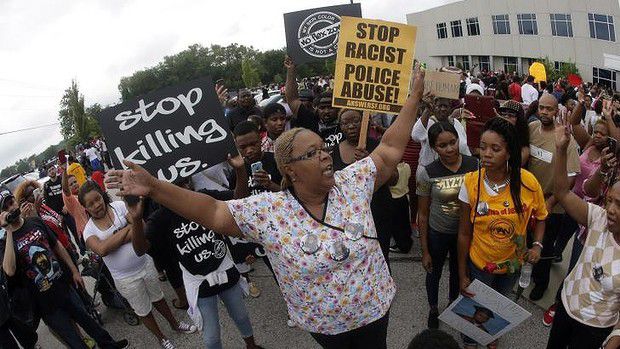Over the months, he said, the protests have become a “women-led movement. ... They're stronger, smarter, sober. A lot of guys are saying, 'I can't be up there [on the front lines], because I've got warrants.' The women don't make excuses.”
Yet television images tend to give an outsized role to men, said Brianna Richardson, 27, a University City resident who used to live in Ferguson and has lately been drawing inspiration from the autobiography of the radical Black Panther activist and fugitive Assata Shakur.
“What you see on the ground and what you see on the news is two completely different pictures,” Richardson said. “You'd think this is all about men, giving all these speeches, having all these ideas. When you're there, you see women have a more prominent role.”
In her activism, Richardson said she brings up black women and girls throughout the nation who have been killed by police.
“When it comes to being a black woman, you deal with the oppression of both race and gender,” Richardson said. “You can't turn one off. I will always be black and a woman. ... Black lives matter, trans lives matter, women's lives matter. I'm standing for all of black lives.”
Read More | "Women find their voice in Ferguson protest movement" | Matt Pearce | LA Times
